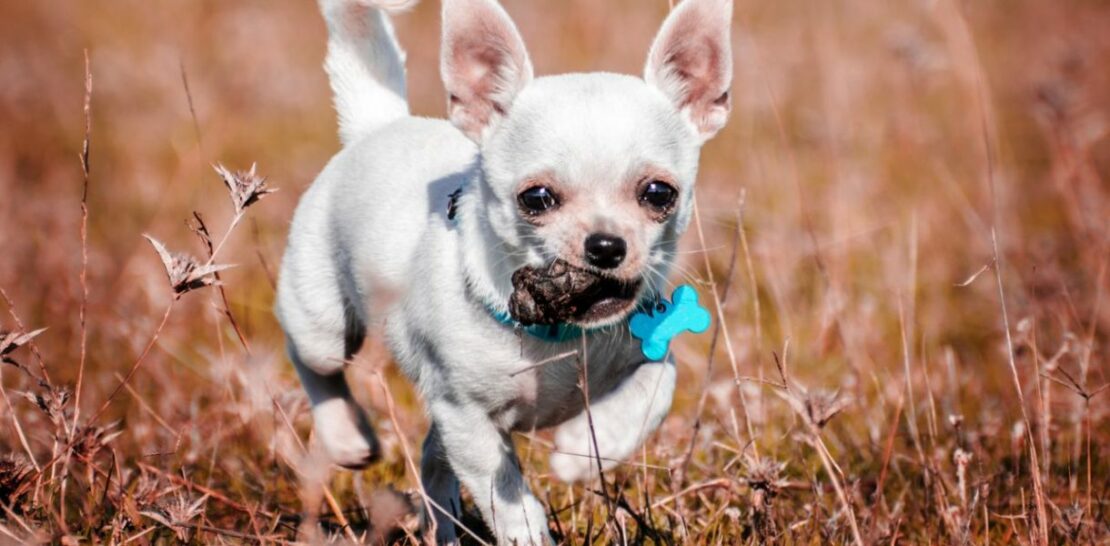As a loving and responsible dog owner, it can be disconcerting and downright disgusting when you discover that your furry companion has taken to eating its own feces.
This behavior, known as coprophagia, is not only unpalatable but can also raise concerns about the health and well-being of your dog.
In this comprehensive article, we delve deep into the world of coprophagia in dogs, exploring its causes, potential health implications, and effective strategies for managing this perplexing behavior.
So, grab a cup of tea, sit back, and arm yourself with the knowledge to tackle this canine conundrum head-on.
Understanding Coprophagia: What Drives Dogs to Eat Their Own Feces?
Before we can effectively address coprophagia in dogs, it’s essential to understand the underlying reasons that might be driving this behavior. While it might seem bizarre to us, there are several factors that could be at play, ranging from natural instincts to health issues.
1. Motherly instincts: In the wild, it’s common for female dogs to eat the feces of their young as a way to keep the den clean and reduce the chances of attracting predators. This behavior can sometimes be observed in domesticated dogs as well, especially after giving birth. While this doesn’t explain why other dogs might engage in coprophagia, it’s an important piece of the puzzle in understanding the roots of this behavior.2. Nutritional deficiencies: It’s possible that some dogs eat their own feces in an attempt to recoup nutrients they believe are missing from their diet. In some cases, this could be due to an imbalanced or low-quality diet, while in others, it might be the result of a dog’s inability to properly digest and absorb the nutrients in their food.3. Underlying health issues: In some cases, coprophagia can be a symptom of an underlying health issue, such as diabetes, Cushing’s disease, or thyroid disorders. These conditions can cause an increase in appetite, leading dogs to eat anything they can find, including their own feces.4. Behavioral factors: For some dogs, coprophagia might be driven by boredom, stress, or anxiety. Dogs that are left alone for long periods or don’t receive enough mental stimulation may resort to eating feces as a way to pass the time or cope with their feelings.
Health Implications of Coprophagia: Risks and Potential Consequences
Now that we’ve explored the possible reasons behind your dog’s coprophagia, let’s discuss the potential health implications of this behavior. While it’s certainly an unsavory habit, is it actually dangerous for your dog to eat its own feces?
1. Parasites: One of the primary health concerns associated with coprophagia is the risk of parasitic infections. Roundworms, hookworms, and other intestinal parasites can be present in feces and transmitted to your dog when it consumes them. Regular fecal testing and deworming can help mitigate this risk, but it’s essential to address the underlying behavior to truly protect your dog’s health.2. Bacterial infections: Ingesting feces can also expose your dog to harmful bacteria, such as Salmonella and E. coli. These infections can cause gastrointestinal upset, fever, and other symptoms, and may require veterinary treatment to resolve.3. Foreign objects: Dogs that consume feces might also inadvertently ingest foreign objects, such as pieces of plastic or other debris, which can cause intestinal blockages or other complications.4. Reinfection: If your dog is being treated for a parasitic or bacterial infection, eating its own feces can lead to reinfection, prolonging the recovery process and potentially causing more severe health issues.
Strategies for Managing Coprophagia: Tips and Techniques for Curbing Your Dog’s Unsavory Habit
Now that we’ve established the potential health risks associated with coprophagia, let’s explore some strategies for managing this behavior and keeping your dog safe and healthy. Remember, patience and consistency are key in implementing these techniques, and it may take some time and experimentation to find the right approach for your dog.
1. Addressing nutritional needs: Ensuring that your dog is receiving a balanced and high-quality diet can help address any nutritional deficiencies that might be driving its coprophagia. Consult with your veterinarianto determine the best food for your dog’s age, breed, and activity level, and consider incorporating supplements if necessary to support overall health and well-being.2. Increasing mental and physical stimulation: Boredom and stress can contribute to coprophagia in some dogs, so it’s essential to provide ample opportunities for mental and physical enrichment. Regular walks, playtime, and interactive toys can help keep your dog engaged and reduce the likelihood of them resorting to eating feces for stimulation. Additionally, consider enrolling your dog in obedience classes or other activities that promote learning and socialization.3. Environmental management: One of the simplest ways to prevent coprophagia is to ensure that your dog doesn’t have access to its own feces. Promptly clean up after your dog when it eliminates, and consider using a leash or supervised outdoor time to prevent them from consuming feces unsupervised. If coprophagia is an issue indoors, consider crate training or using baby gates to restrict access to the areas where your dog eliminates.4. Behavior modification techniques: There are several behavior modification techniques that can be employed to discourage coprophagia, including:
- Positive reinforcement: Reward your dog with praise, treats, or attention when they eliminate appropriately and refrain from consuming feces. This can help create a positive association with the desired behavior and discourage coprophagia.
- Interrupting the behavior: If you catch your dog in the act of consuming feces, interrupt them with a loud noise, such as clapping or a vocal command, and redirect their attention to a more appropriate activity.
- Taste aversion: Some dog owners have found success in using taste aversion techniques, such as adding a safe and unpalatable substance (like bitter apple spray) to their dog’s feces. This can make the feces less appealing and discourage the dog from consuming it. However, it’s important to consult with your veterinarian before attempting this approach, as some substances can be harmful to your dog.
When to Seek Professional Help: Recognizing the Signs that Your Dog’s Coprophagia Requires Expert Intervention
While many cases of coprophagia can be managed with patience and the strategies outlined above, it’s important to recognize when your dog’s behavior may warrant professional intervention. If you’ve tried implementing these techniques without success, or if your dog’s coprophagia is accompanied by other concerning symptoms or behaviors, it’s time to consult with your veterinarian or a veterinary behaviorist.
1. Unexplained weight loss: If your dog is losing weight despite consuming a balanced diet and engaging in coprophagia, this could be a sign of an underlying health issue that requires veterinary attention.2. Persistent gastrointestinal issues: Chronic diarrhea, vomiting, or other gastrointestinal symptoms could indicate that your dog’s coprophagia is causing harm to their digestive system and may necessitate medical intervention.3. Signs of anxiety or stress: If your dog’s coprophagia seems to be linked to anxiety or stress, it’s important to address these issues with the help of a veterinary behaviorist or other professional. Behavioral modification techniques, environmental modifications, and potentially medication may be necessary to help your dog cope with their anxiety and curb their coprophagia.4. Unresponsive to at-home interventions: If you’ve tried the strategies outlined in this article and your dog continues to engage in coprophagia, it’s time to seek professional help. Your veterinarian or a veterinary behaviorist can help identify any underlying health issues, assess your dog’s environment, and develop a customized treatment plan to address their unique needs.
In conclusion, while coprophagia in dogs can be distressing for pet owners, it’s important to approach the issue with understanding and patience. By exploring the potential causes, addressing any underlying health issues, and implementing effective management strategies, you can help curb your dog’s unsavory habit and promote their overall health and well-being. Remember, seeking professional guidance is always a prudent course of action when dealing with complex canine behaviors like coprophagia. Armed with knowledge and the right support, you can successfully navigate this canine conundrum and keep your furry friend happy and healthy.




